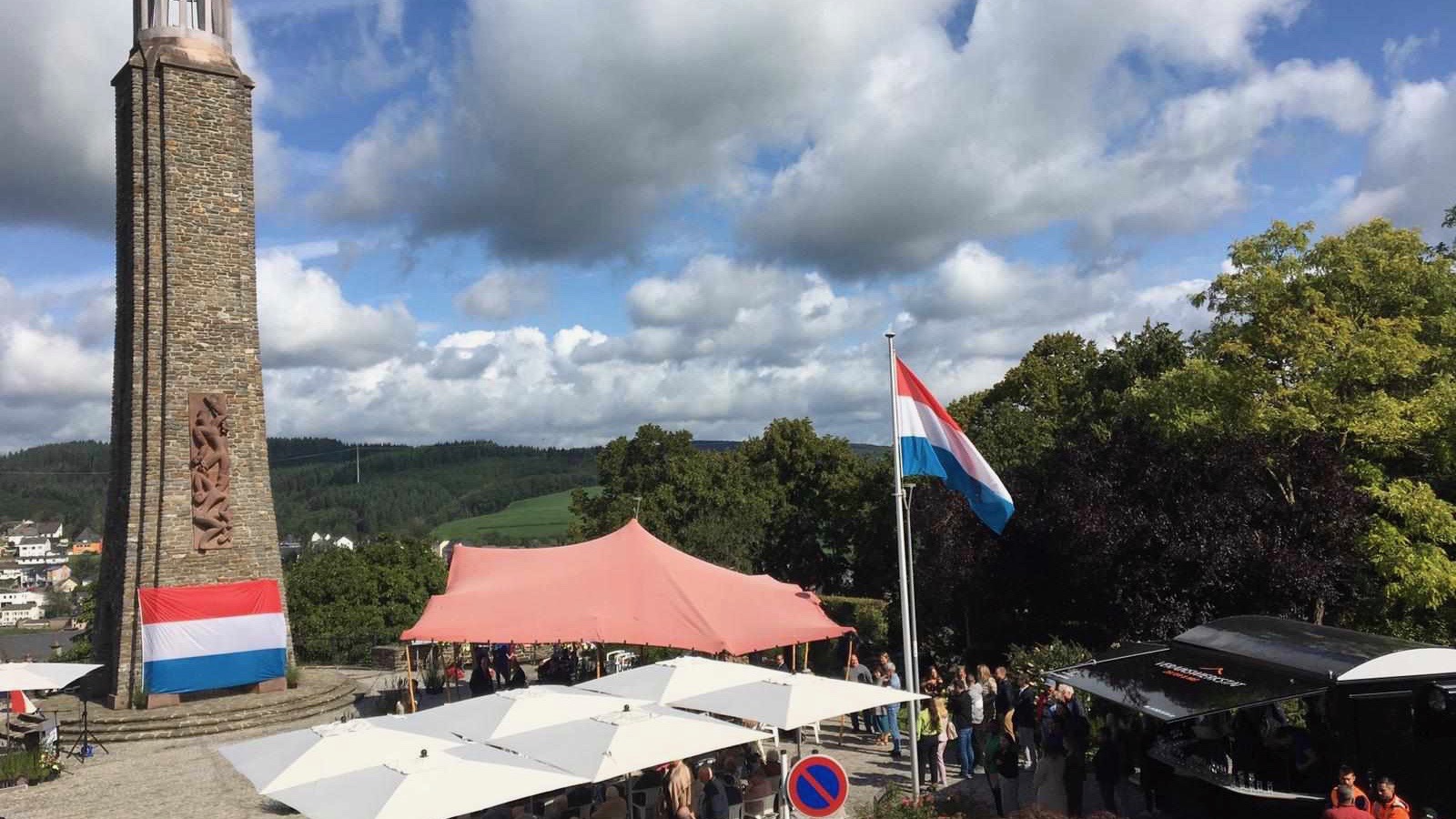On Thursday, August 31, trade unions and leftist organizations in Luxembourg commemorated the general strike of August 1942 that was organized by workers against the Nazi occupation and forced recruitment of workers to the Nazi army, the Wehrmacht, during World War II. Various events were organized at Wiltz, Esch-sur-Alzette, and Luxembourg city on Thursday, where leaders and cadres of the Independent Luxembourg Trade Union Confederation (OGBL), the Communist Party of Luxembourg (KPL), and Dei Lenk (The Left), among others, paid tributes to the 21 workers who were executed by the Nazi German occupiers for participating in the strike. A memorial event was also organized in Differdange on September 2.
During World War II, while Luxembourg was under German occupation, the Nazi authorities demanded the conscription of young Luxembourgers into the Wehrmacht to fight the Allies. To protest against this forced conscription, workers went on a general strike that started in Wiltz on August 31, 1942 and spread across the country. The Nazi authorities tried to suppress the strike with an iron fist as the Gestapo, or the Nazi secret police, arrested hundreds of strikers and put them in torture camps. 20 strikers were detained at the Hinzert concentration camp between September 2-9 and one in Cologne, who were all executed. Several students and youths were sent to correctional facilities and many workers and their families to labor camps in Eastern Europe.
To honor the memory of the 1942 general strike, a ‘National Monument to the Strike’ was opened in Wiltz in 1965.
Earlier, in 1941, working class sections in the Netherlands, Belgium, and Norway had also gone on strike against the Nazi occupation.
Alain Herman from the leadership of Communist Party of Luxembourg (KPL) told Peoples Dispatch on Thursday, “The commemorations of the general strike of 1942, which took on a national character with the strike of key enterprises and administrations in the first two days of September, remain of great importance for the workers’ movement and the progressive forces of Luxembourg 81 years after the events.”
“These days politicians of different bourgeois colors and representatives of associations with a ‘devoir de mémoire’ mission warn in their speeches at these commemoration ceremonies of the dangers of resurgent right-wing extremism and of the threats to democracy and peace. This is welcome. However, the basic evils that keep the womb fertile for new fascist movements as well as for militarization and warmongering are rarely addressed. Yet it is precisely the general strike of the workers in Luxembourg, this decidedly peaceful act of solidarity against fascist despotism and war policy, that should be a source of inspiration. The best recipe against fascism and capitalist barbarism is to assert basic principles of peace, the social state, and democracy, especially with the means of industrial action,” he added.





